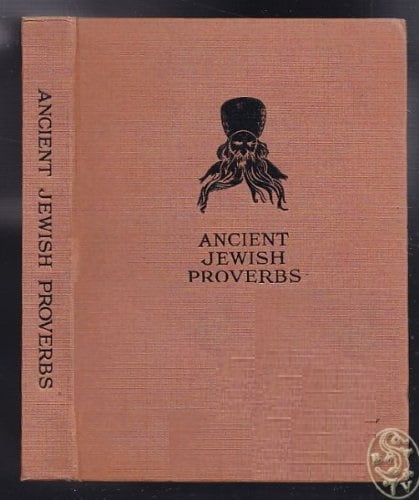
Ancient Jewish Proverbs
Reference by
Abraham Cohen
This entry in the Wisdom of the East series is a treasury of traditional Jewish proverbs, mostly extracted from the Talmud and Mishna.
Preaching the Gospel of the Kingdom of God.

This entry in the Wisdom of the East series is a treasury of traditional Jewish proverbs, mostly extracted from the Talmud and Mishna.
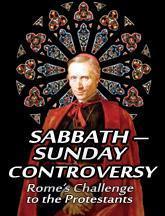
The Catholic Church proudly pointed out that the Protestant church following their lead on a Sunday worship proved the authority of the Catholic Church to change scripture and the commands of God. They recognize there is no authority for Sunday Worship besides their own ….and point to the Protestant Churches following them as their acknowledgement of their authority.
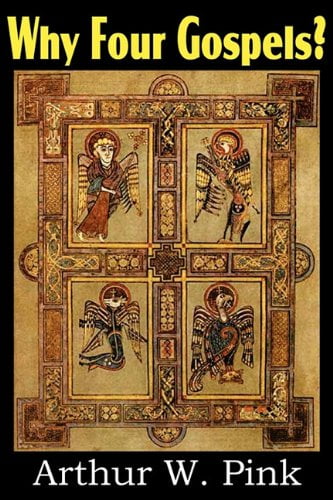
In his book, Why Four Gospels, Arthur Pink explains how the four Gospels necessarily work together to paint a multi-faceted picture of Jesus. In Matthew, we see Jesus as the Son of David, King of the Jews. In Mark, Jesus is presented as the Servant of Jehovah. In Luke, we see Jesus as the Son of Man, Adam’s descendent. Finally, John presents Jesus as the Son of God, emphasizing Jesus’ relationship with the Divine. Christ fulfilled four distinct roles during his time on earth, and these four roles are illustrated in the four distinct Gospels.
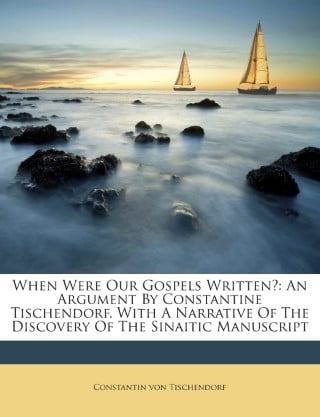
In 1844, Tischendorf made one of his greatest discoveries in the shadow of Mount Sinai— the Codex Sinaiticus, one of the oldest New Testament manuscripts, dated around AD. 360-375. In When Were our Gospels Written? Tischendorf recounts his search and discovery of the manuscript. Based on the new information yielded by that discovery, the scholar estimates dates for the composition of the Gospels. The Codex Sinaiticus remains a celebrated historical treasure, preserved in museums and prestigious libraries for future generations.

The boy’s father and mother were true Chris tians, Old-fashioned believers. His father read the Bible to him and encouraged him to read it for himself. The father was not instructed in the full range of Biblical truth, but he lived very much in the Book of Psalms, and loved David greatly. And the boy read his Bible lessons, like any other boy in a respectable Chris tian family; but he did not dream that the Bible was a book to be studied like other books, and he gave it little attention.
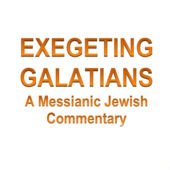
In the book of Galatians, Paul had used many technical words and phrases in the Hebrew language. Unfortunately, these words had a tendency to be greatly misinterpreted if taken out of the 1st century Judaic context. As a result, some interpreters teach concepts that were almost the opposite of their original purpose.
HaNaviy is a Jew who teaches Torah from a Messianic perspective. He doesn’t claim to uncover the whole truth in the book of Galatians. But he is challenging us to take a scientific approach to understand how the believers in Galatia would have taken up the message of Paul. By doing so, we stand a better chance of understanding Paul’s puzzling instructions. Because without the proper background, we will misread the Apostles to the Gentiles. So let’s read Exegeting Galatians and see this epistle with fresh eyes.
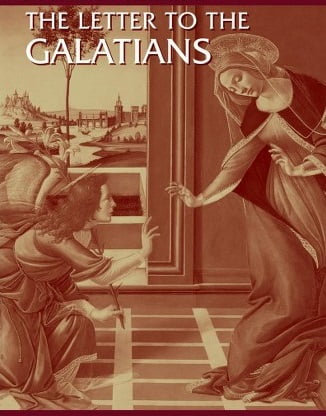
Historically, the book of Galatians has been widely misunderstood, due largely to the technical discussions of biblical topics ranging from circumcision to the Torah, to freedom in Christ. A contextual study of Galatians will help to unravel the letter for both Christians and Jews. Associating Pharisaism with Moses, the phrase“works of law”(especially in Galatians)is quite misunderstood in mainstream Christianity—particularly consider in the Protestant belief that the Law has been somehow null if led by Jesus’ sacrifice. According to such skewed theology, on one side of the fence is Moses and the Torah—the Pharisees, represent at lives of that “Old Testament religion.” On the other side is Jesus, Paul and grace.
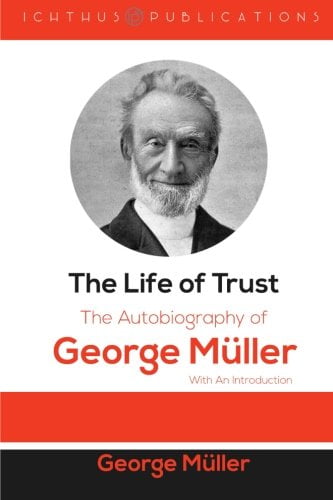
The name of George Müller is synonymous with faith and trust in God. The mere mention of his name oftentimes invokes images of helping the orphaned and feeding the poor. But that compassionate heart wasn’t always so. As you read many of the accounts from Müller’s own diary, you will discover his own personal journey from sin and rebellion to profound transformation that compelled him to devote his life to feeding and sheltering orphans. In this autobiographical story of his life and ministry, discover God’s bountiful provisions as Müller unceasingly relied upon God’s goodness in order to feed, clothes, and house thousands of English children under his care. Discover examples of his unwavering faith in a heavenly Father who continually watches over, protects, and cares for the needs of all his children
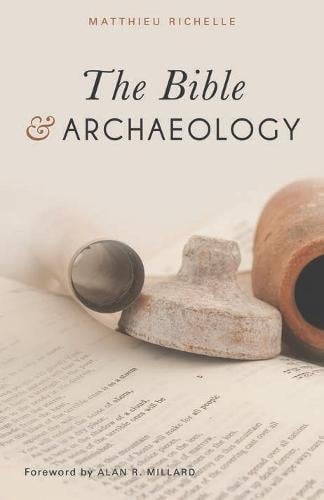
This book is a brief, popular (but informed and up-to-date) introduction to the relationship between the Bible and archaeology. Material culture (i.e., artifacts) and the biblical text illuminate each other in various ways, but many of us find it difficult to reach a nuanced understanding of how this process works and how archaeological discoveries should be interpreted. This book provides an ironic and balanced perspective on these issues, showing how texts and artifacts are in a fascinating “dialogue” with one another that sheds light on the meaning and importance of both. What emerges is a rich and complex picture that enlivens our understanding of the Bible’s message increases our appreciation for the historical and cultural contexts in which it was written and helps us be realistic about the limits of our knowledge.

In the Bible, God gives us a solution written within the Ten Commandments. It’s a commandment that gives us time for a welcome, refreshing rest from our weekly labors, a time during which we must no longer be absorbed in our ordinary daily cares and concerns—a time for spiritual rejuvenation. Overwhelmed? Need a day off… a break? Maybe it’s time to learn the truth about the Sabbath. In the Bible, God gives us a solution written within the Ten Commandments. It’s a commandment that gives us time for a welcome, refreshing rest from our weekly labors, a time during which we must no longer be absorbed in our ordinary daily cares and concerns—a time for spiritual rejuvenation.
”